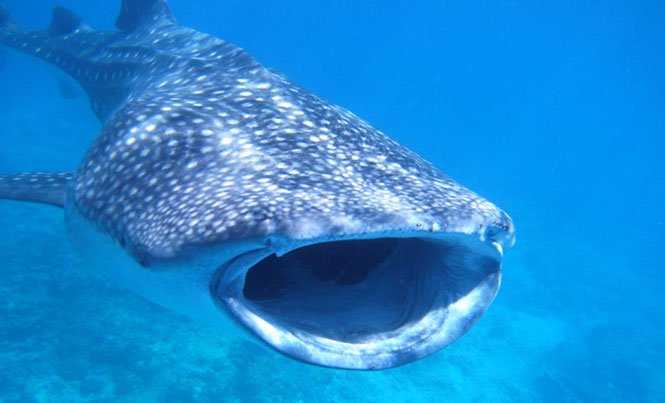
Greater protections of this threatened gentle giant is needed to ensure its survival
From May to September, whale sharks, the biggest fish in the world, arrive at the coasts of the Mexican Caribbean, and Quintana Roo is privileged to have the largest gathering of whale sharks worldwide. It is a peaceful, filter feeder and many boats leave from Cancun, Holbox and Isla Mujeres to take people to snorkel with them, as their peaceful nature represents no threat to humans.
This activity is so important to the economy that a festival is held in Isla Mujeres each year in their honor. The observation of this species through peaceful viewing is an important activity economically. However, if it is not more heavily regulated, it could damage their habitat.
Their habitat is highly vulnerable to contamination. Therefore, economic development and other human activities threaten their existence.
According to the official records of SEMARNAT, this fish is classified as a threatened species, which means that it could disappear within a short time if the factors threatening its viability continue.
Internationally, it is hunted for its meat and the high value of its fins. Commercial sale of the whale shark is regulated by the convention governing the International Commerce of Threatened Wildlife, but in spite of the efforts for its conservation, the population is in decline.
In Mexico, it is protected by the General Wildlife Law and its capture is prohibited by the law regarding responsible fishing.
Even though a reserve exists, tourism is having a significant impact on the population of whale sharks. The General Wildlife Office issues permits to visit the whales, with specific rules and codes that tourists must follow.
With the initiative presented in congress, an eventual declaration of the waters surrounding the Yucatan as a whale shark sanctuary is anticipated.